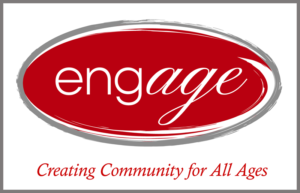 Recently, Karen Austin wrote a guest post entitled “Elderspeak: Baby Talk Directed at Elders” for the excellent Changing Aging Blog. In it, she talks about the all too common tendency to talk down to older people: using a sing-song voice; speaking slowly; speaking loudly; using the pronouns “we,” “us,” and “our” in place of “you” (“How are we doing today?”); using pet names such as “sweetheart,” “dearie,” or “honey;” and other examples. She reports that research has shown that when older adults are exposed to this kind of patronizing language, their performance on tasks decreases and their rates of depression increase.
Recently, Karen Austin wrote a guest post entitled “Elderspeak: Baby Talk Directed at Elders” for the excellent Changing Aging Blog. In it, she talks about the all too common tendency to talk down to older people: using a sing-song voice; speaking slowly; speaking loudly; using the pronouns “we,” “us,” and “our” in place of “you” (“How are we doing today?”); using pet names such as “sweetheart,” “dearie,” or “honey;” and other examples. She reports that research has shown that when older adults are exposed to this kind of patronizing language, their performance on tasks decreases and their rates of depression increase.
A personal example: few years ago, my mother, now 90, went to a new doctor. The nurse was incredibly patronizing, often asking me questions instead of her (in spite of my insistence that my Mom was capable of answering them), and repeatedly calling my quite able and alert mother, “honey bunny!” Mom was deeply offended, as was I. And, as a result, the doctor/patient relationship was as brief as possible.
Have you had a similar experience in which you or a family member or friend were confronted with elderspeak? How did you handle it?
 A bit about Karen Austin: After spending 30 years teaching writing and literature primarily to traditional-age college students (18-25), Karen decided to focus for the next 30 years on “the generation above me.” Currently, Karen is a graduate student in Aging Studies at Wichita State University and a volunteer working with older adults in a variety of venues.
A bit about Karen Austin: After spending 30 years teaching writing and literature primarily to traditional-age college students (18-25), Karen decided to focus for the next 30 years on “the generation above me.” Currently, Karen is a graduate student in Aging Studies at Wichita State University and a volunteer working with older adults in a variety of venues.



Years ago at a nursing home the medical staff kept taking past my mother to us. Finally my mother said, “Hey, I’m here you know!”